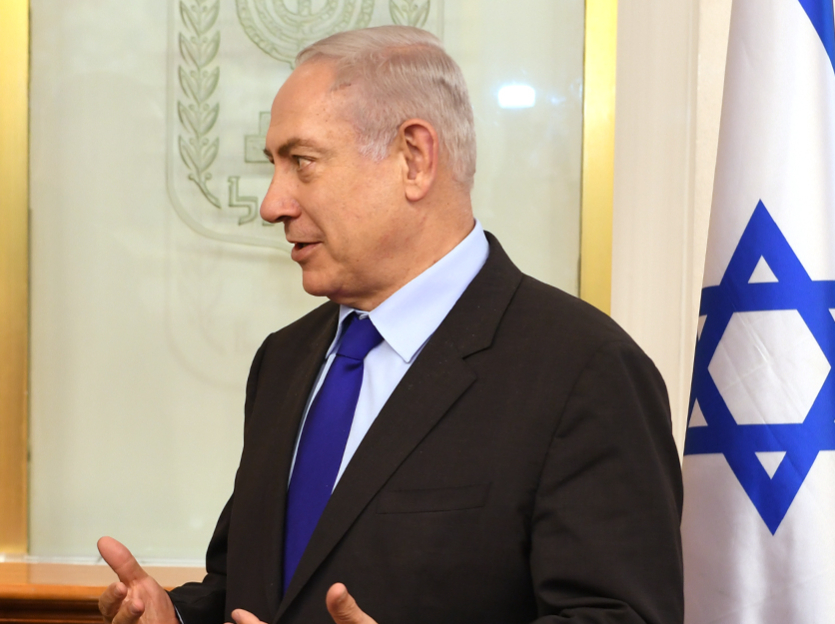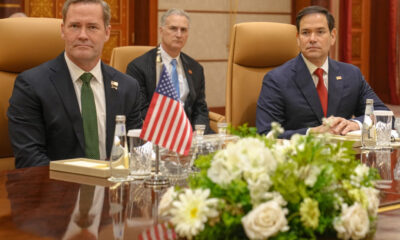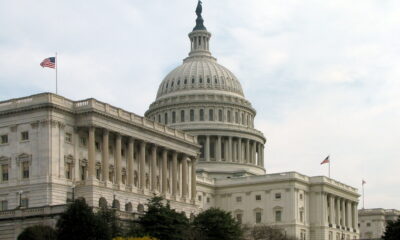Civilization
Netanyahu’s Defiance and Biden’s Dilemma

Netanyahu’s Defiance and Biden’s Dilemma: The Politics Behind Halting Military Aid
President Biden’s declaration in a CNN interview that the U.S. will discontinue sending large-diameter bombs to Israel should Israel Defense Forces enter Rafah was met with fierce bipartisan criticism. Biden was accused of relieving pressure on Hamas as Israel and the U.S. seek a ceasefire deal. The American president was accused of forsaking our staunchest ally at a critical moment in that country’s history – a time when Israel, largely isolated on the world stage due to its heavy-handed strategy in Gaza, needs the United States the most. Biden was accused of forcing a critical junction that could forever alter the 76-year history of U.S.-Israel relations.
The truth is that the freezing of these weapons will change nothing. Israeli Prime Minister Benjamin Netanyahu will not back down. The IDF have plenty of bombs, bullets, and rockets to level Rafa. The assault on that tiny city will go as scheduled. Biden’s decision to withhold military aid to Israel is a strategic move aimed at balancing the need to support a key ally with growing domestic dissent.
Biden’s withholding of munitions from Israel in a time when that country is at war is not about altering the course of the conflict or changing the way Israel adjudicates that war. It also allows a political lifeline to Netanyahu.
Biden caught between two political tensions
Biden seeks to thread a delicate needle here: he must demonstrate support for Israel in its war against Hamas while responding to shifting public opinion at home. Polls indicate that his administration’s handling of the Israeli-Palestinian conflict could have significant implications for his re-election prospects. Young, progressive voters, in particular, have grown increasingly critical of U.S. support for Israel, calling for more stringent measures to ensure the protection of Palestinian civilians. Biden, who has historically positioned himself as a steadfast ally of Israel, finds himself in a bind: how to maintain that support while addressing growing domestic dissent.
The president’s decision to withhold military aid is a strategic maneuver to appease critics without severing ties with a key ally. By taking this stance, Biden aims to demonstrate that he is not merely a puppet of Israeli policy, thus potentially mitigating the backlash from progressive factions within his party. This sentiment has been echoed in various protests across college campuses nationwide, where students have vocally opposed the administration’s continued support for Israel amidst reports of civilian casualties in Gaza.
However, Biden’s decision does not signal a fundamental shift in U.S. policy towards Israel. The administration continues to affirm Israel’s right to self-defense against Hamas, emphasizing the need for Israel to take more extraordinary precautions to avoid civilian casualties. This nuanced position allows Biden to walk a political tightrope, offering just enough to critics to stave off immediate backlash while reaffirming his commitment to Israel’s security.
Netanyahu polishing his image as Israel’s defenders
For Netanyahu, Biden’s decision provides a different kind of political lifeline. Facing his domestic challenges, including ongoing corruption trials and a divided electorate, Netanyahu has seized upon this moment to reinforce his image as Israel’s unyielding defender. In the aftermath of Biden’s CNN interview, Netanyahu released a statement declaring that “If we have to stand alone, we will stand alone.” What he means is that HE will stand alone as the protector of Israel – the one man willing to defend the Jewish state against Hamas, Hezbollah, and Iran. His response to the U.S. decision has been to double down on his rhetoric of defiance, framing himself as the only leader capable of standing up to international pressure and protecting Israeli interests.
Netanyahu has always sought to portray himself as a strongman willing to lose allies, willing to shed all external relations on behalf of Israelis. He believes the Israeli people must think that he alone can keep Israel safe into the future by eradicating Hamas and protecting Israel from Biden’s intervention.
Highly unpopular
Bibi is a shrewd political strategist who excels in navigating the complexities of power and public opinion both within Israel and on the global stage. He is deeply unpopular in Israel and his main competitor, Benny Gantz, has called for an early election in September – elections that Gantz’s National Unity Party would likely win, throwing Netanyahu out of power. To avoid a snap election, Netanyahu is striving to position himself as the sole guardian against American influence, reinforcing his image as a relentless defender of Israel’s interests.
Netanyahu’s political acumen is reflected in his consistent messaging and actions throughout his career. He has often depicted himself as Israel’s steadfast protector, especially when confronting external threats. In a notable 2015 speech to the American Israel Public Affairs Committee, Netanyahu asserted, “I will do whatever I must to defend the Jewish state.”
Netanyahu’s narrative of solitary defiance is familiar but gains renewed potency in the current context. By portraying himself as a leader willing to stand alone, he appeals to nationalist sentiments within Israel, strengthening his political base. His defiance following Biden’s CNN interview underscores this stance, positioning him as the bulwark against external threats, even if that means facing criticism from a traditionally supportive ally like the United States.
This is about domestic, not necessarily battlefield, gain
This dynamic illustrates a broader trend in U.S.-Israel relations, where political leaders leverage their actions and rhetoric for domestic gain. Both Bibi and Biden are boxed in. For Biden, withholding weapons is a calculated risk aimed at preserving electoral viability without abandoning a key strategic ally or a key losing the Jewish vote here at home in the fall. For Netanyahu, it is an opportunity to consolidate power and reinforce his image as Israel’s indispensable guardian. Both leaders know that the Israel Defense Forces do not actually need any of the weapons under threat of U.S. freeze – Israel can pummel Rafah with its current inventory.
None of this is fair to the people in Gaza. The situation there remains dire. The humanitarian crisis continues unabated, with civilians bearing the brunt of the conflict. While Biden’s decision may resonate politically, it does little to address the root causes of the violence or offer a path to lasting peace. The U.S. stance on withholding military aid is a symbolic gesture that underscores the complexity of the conflict but falls short of the transformative action needed to bring about real change.
Deep-seated issues
Ultimately, Biden’s decision to withhold military aid is less about altering the dynamics of the Israeli-Palestinian conflict and more about navigating the treacherous waters of domestic politics. While this move might offer short-term political gains, it does little to address the enduring humanitarian crisis in Gaza or the deep-seated issues fueling the conflict. Israel has not and will not agree to any reasonable post-war vision for the enclave. To achieve lasting peace and security for both Israelis and Palestinians, bold leadership and transformative action are essential. The focus must shift from symbolic gestures to addressing the core issues that perpetuate the conflict, fostering genuine dialogue, and committing to a sustainable and just resolution.
This article was originally published by RealClearDefense and made available via RealClearWire.
Joe Buccino is a research analyst at the Defense Innovation Board, a former communications director at U.S. Central Command, and a retired U.S. Army colonel with five deployments to the Middle East during his military career. He served as the communications director for the NATO support mission in Europe from February to November 2022.
-

 Civilization4 days ago
Civilization4 days agoThe Minnesota Insurrection
-

 Civilization4 days ago
Civilization4 days agoSupreme Court Orders CA Dems To Justify Prop 50 Maps
-

 Education3 days ago
Education3 days agoFree Speech Isn’t Free and It Cost Charlie Kirk Everything
-

 Civilization3 days ago
Civilization3 days agoThe Campaign Against ICE Is All About Open Borders
-

 Executive2 days ago
Executive2 days agoWaste of the Day: U.S.-Funded International Groups Don’t Have to Report Fraud
-

 Executive5 days ago
Executive5 days agoObama’s Fingerprints All Over Investigations of Trump And Clinton
-

 Executive3 days ago
Executive3 days agoWaste of the Day: How the Grinch Stole $30,000
-

 Civilization2 days ago
Civilization2 days agoThe Battle for the Arctic Runs Through Greenland














